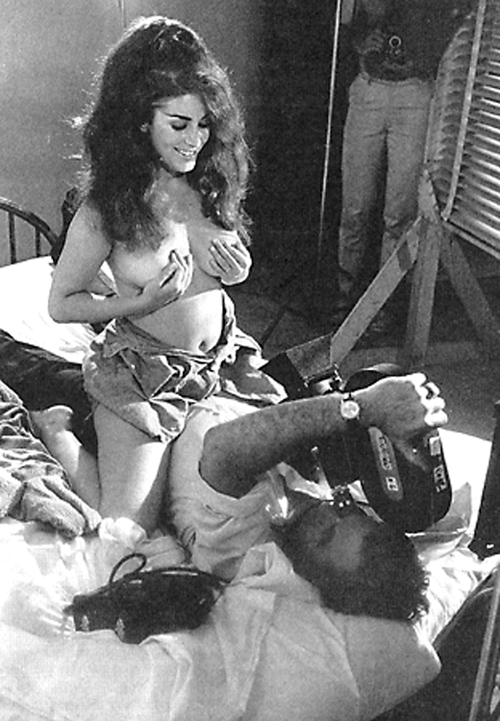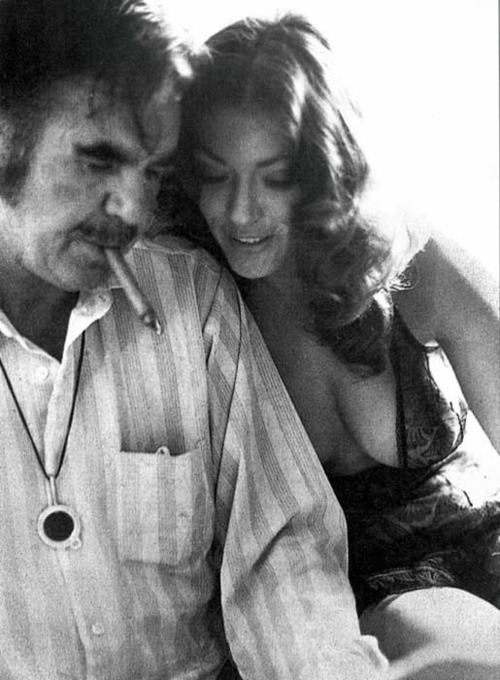In the Fall of 1999, I had the privilege of attending a Russ Meyer retrospective at the Egyptian Theater in Hollywood where for the first time I saw movies like “Beyond the Valley of the Dolls” (1970), “Supervixens” (1975), and “Beneath the Valley of the Ultra-Vixens” (1979). Now I was aware of Russ Meyer’s reputation from studying film history in college. In a state of a chemically altered consciousness my friends and I had enjoyed watching “Faster, Pussycat! Kill! Kill!” (1965), but my knowledge of Russ Meyer ended there. Nothing could have prepared me for the cinematic onslaught of tits, violence, comedy and social commentary one finds in just about any of Meyer’s films. This retrospective of Meyer’s work simply knocked me on my ass and kept me in a state of pure glee from start to finish. To make the experience complete, Russ Meyer was there in person to talk about his work. I became an instant fan and to this day I find him to be one of the most distinctive and original filmmakers of the 1960s and 1970s. Over the years, I’ve attended more screenings of Russ Meyer films and read a lot of articles where his admirers praise his career, but it seems to me that this one man wrecking crew of a filmmaker is not given nearly the credit he deserves on a regular basis. I’m annoyed that Meyer doesn’t enjoy a loftier position in the halls of the great American directors and I suspect that a large part of American culture remains too puritanical to acknowledge what he accomplished. If his films placed more emphasis on violence instead of sex, my feeling is that he’d be spoken of in the same breath as some of his peers from that era such as Don Siegel, Robert Aldrich, Samuel Fuller, and Sam Peckinpah.
To be fair, there are plenty of people that love Russ Meyer’s movies. “Vixen!” (1968), the first American film to be released with an “X” rating, played in some drive-in theaters for well over a year and made Russ Meyer independently wealthy for the rest of his life. What annoys me is the asterisk that is placed next to his name whenever he is discussed, an asterisk that isn’t used when discussing other filmmakers. My fellow film enthusiasts are occasionally guilty of sounding self-important and sanctimonious (myself included), especially when discussing older movies and which directors they consider to be auteurs. Too many of these self-proclaimed critics and film historians, who should be defending him from those who look down on the supposed immorality of his movies, are prone to write off Russ Meyer as simply a pornographer. Overlooking what Meyer’s movies have to offer is a huge mistake not only from an aesthetic point of view but also from the perspective of the raw, visceral experiences his movies offer in abundance.
In an episode of Jonathan Ross’s “Incredibly Strange Film Show” (linked below) Roger Ebert, who co-wrote several films with Meyer, points out something crucial about Russ Meyer’s work. I’m paraphrasing here, but he essentially states that Russ Meyer is one of the few filmmakers whose movies are instantly recognizable by simply looking at one frame of film.
https://youtu.be/5EBwx3bHNCk
Some fantastic trailers of Russ Meyer’s films:
https://youtu.be/tiE4QWPDxus









